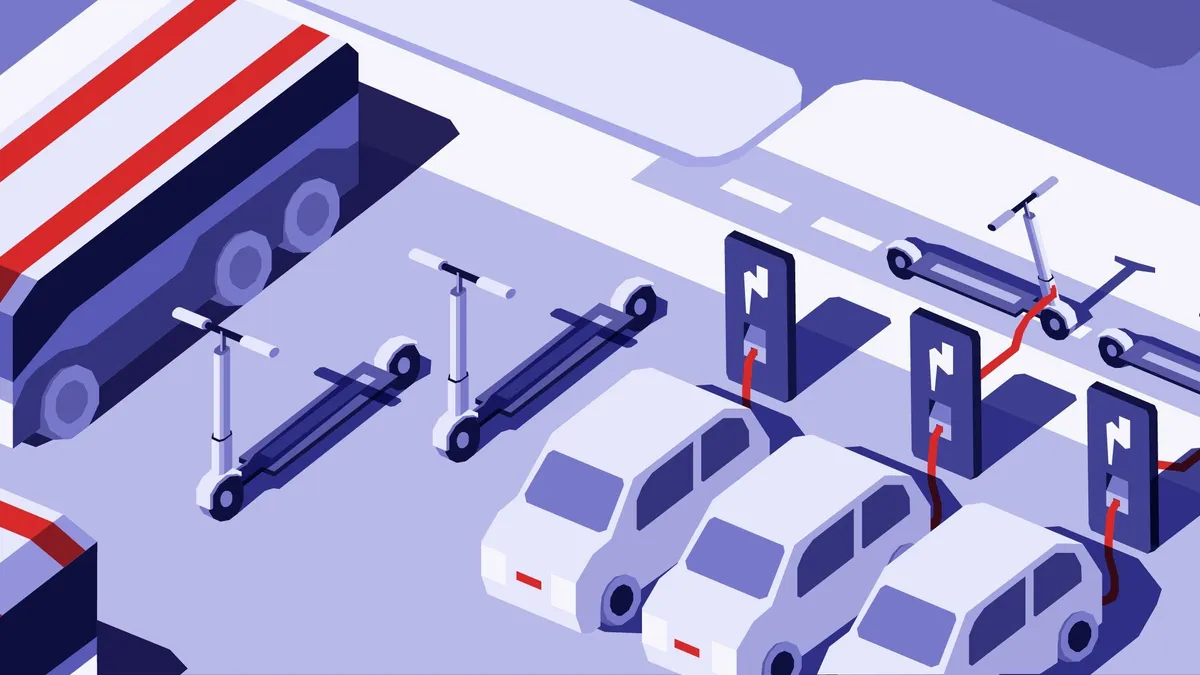Dive Brief:
- The New Jersey Assembly and Senate on Monday approved legislation (S2252/A4819) to advance electric vehicles in the state, setting a target of 2 million light duty EVs in the state by 2035 and providing $300 million over 10 years for rebates to consumers who purchase an EV.
- New Jersey Sierra Club Director Jeff Tittel called it the most important bill New Jersey has passed in 12 years to reduce greenhouse gas emissions, noting that 45% of such emissions in the state come from mobile sources.
- Governor Phil Murphy, D, is expected to sign the bill. Next steps, Tittel noted, include establishing the rebate program, changing building codes to require charging equipment with new construction of offices and multi-family dwellings, and working on a more comprehensive bill to advance electrification of buses and trucks.
Dive Insight:
"New Jersey sets a really high bar by passing this bill yesterday," Bill Holland, senior director of state policy and advocacy at the League of Conservation Voters, told Utility Dive.
It's a strong set of tax incentives at the state level, matching a couple of other states, "and I think really demonstrate Murphy's continued leadership on climate," he added. The consumer incentives include up to $5,000 in rebates for purchasing an EV.
The bill contains several other measures to increase the number of EVs in the state, including requiring 1,400 new chargers, 400 of which must be DC fast chargers, by the end of 2025, to complete a statewide fast charging network. It also requires New Jersey Transit to only purchase zero emission buses after 2032 and go all-electric by 2040.
"Making $300 million available over 10 years is definitely eye catching," said Pam Frank, CEO at ChargEVC, a New Jersey-focused business association with members that include utilities, environmental advocates, power generators, charging companies, and the state's auto dealer association, among other groups.
"The electric vehicle rebate program promises to be the most aggressive in the nation, appropriate given the size of our transportation market and the state of our air," she said in a statement.
But while Frank and others roundly praised the legislation, they also noted a host of challenges to attaining its goals.
A key challenge will be getting infrastructure built in a timely way, Frank said, adding that "the nuts and bolts of things like permitting and coordinating on things like interconnection ... can be really complicated and takes a lot of time."
With regulatory and construction timelines, it can take 2.5 years before anything goes in the ground, she noted.
"That's not acceptable ... It doesn't mean we need as many charging stations as gas stations, but they should be noticeable," she said.
"We need to cover the state with [charging] opportunities that look like the way we fuel today and create a gas station experience," she told Utility Dive.
More broadly, Holland said the biggest challenge to advancing EVs is the auto industry "continuing to block solutions that matter."
He pointed in particular to automakers that have sided with President Trump in his efforts to block California's clean car standards.
Beyond implementation of the current bill, next steps for New Jersey include a more comprehensive electrification bill that addresses ports, buses, trucks and other items, Tittel said.
"Compared to New York and Massachusetts, New Jersey has to play catch up," he told Utility Dive.














